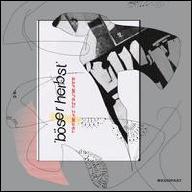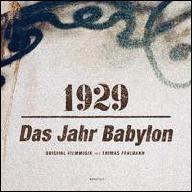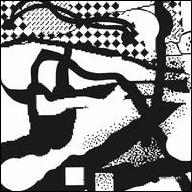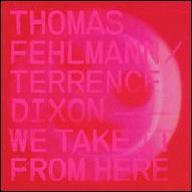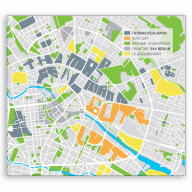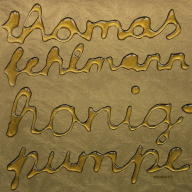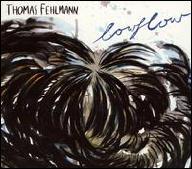Originally from Zurich, Switzerland, Thomas Fehlmann left his home country to attend University of Fine Arts Hamburg, where he was inspired by guest professors Conrad Schnitzler and Joseph Beuys, as well as visitor Robert Fripp, who convinced him to purchase his first analog synthesizer. While in Hamburg, Fehlmann and Holger Hiller formed Palais Schaumburg, who made their recorded debut in 1980 and became one of the leading forces in German new wave, or NDW ("Neue Deutsche Welle"). The band recorded three albums through 1984, a period during which Fehlmann contributed collaborative tracks to the Schnitzler-produced compilation Das Ist Schönheit, reinterpreted Paul Hindemith's Wir Bauen Eine Stadt with Hiller, and cut a single with Peter Gordon, among other activities. For the decade's latter half, Fehlmann floated from project to project. In 1986, he released a humorously offbeat, sample-oriented 12" as Ready Made, assisted by a cast including the Art of Noise's J.J. Jeczalik. An A&R stint with Phonogram was highlighted by working with Trio's Stephan Remmler and speeding the ascent of Rainbirds, whose first two albums reached the Top Five in Germany. In 1988, Fehlmann and fellow NDW figure Inga Humpe provided the soundtrack for Der Kuss des Tigres. His establishment of Phonogram's Teutonic Beats subsidiary the same year proved to be pivotal. Home to additional Ready Made material and the first productions of Palais Schaumburg bandmate Moritz von Oswald (Marathon), Maximilian Lenz (WestBam), and Wolfgang Voigt and Jörg Burger (Best Boy, Third Electric), the club-focused label also placed Fehlmann in the path of Alex Paterson, who soon involved him with the Orb.
Keeping track of Fehlmann throughout the '90s was even trickier. Fehlmann and von Oswald worked closely with Billy MacKenzie on the final Associates releases and the madcap singer's first solo material. Around this time, the duo traveled to instigate the Berlin-Detroit techno alliance with Motor City innovators such as Juan Atkins, Eddie Flashin' Fowlkes, Underground Resistance, and Blake Baxter. Interchangeably joined by either Atkins or Fowlkes, Fehlmann and von Oswald issued a handful of 1992-1993 recordings as 3MB, most notably "Jazz Is the Teacher," for the label offshoot of Berlin's central Tresor nightclub (where Fehlmann also held a DJ residency). Fehlmann synchronously co-produced tracks by the group Sally Davis Jr. and strengthened his creative bond with Tom Thiel and Max Loderbauer of Sun Electric, previously two-thirds of Teutonic Beats act Fischerman's Friend. At some point in 1994, Fehlmann also found time to submit an EP of his own, Flow, for RS. All the while, his peripheral role with the Orb gradually became ancillary. He took part in FFWD with the Orb and Robert Fripp, and became a full-time member in the process of making Orbus Terrarum, released in 1995 with a co-writing credit on all but one of its tracks. The Fehlmann/von Oswald axis struck again on Tresor that year with an eponymous ambient 12" as Schizophrenia. Through RS outgrowth Apollo, Fehlmann lengthened his solo discography with the Good Fridge and One to Three albums, and Blow-Up Chimp 12", all issued during the latter two years of the '90s. Fehlmann and Mute operator Daniel Miller produced two tracks for Kompakt's 7" Kreisel 99 series during the same period.
Kompakt, co-owned by Wolfgang Voigt -- one of the many artists for whom Fehlmann provided crucial early support -- subsequently became the main outlet for Fehlmann's solo work across the next two decades. Through Visions of Blah (2002), Honigpumpe (2007), Gute Luft (2010), and Los Lagos (2018), as well as the documentary soundtracks 1929: Das Jahr Babylon (2018) and Böser Herbst (2021), plus numerous singles and EPs, the producer continually refined his liquid form of ambient and dub techno. The style unmistakably colored the Orb's abundant output, some of which also sported the Kompakt imprint. Amid all this productivity, Fehlmann also partnered with other labels. He put together Lowflow (Plug Research, 2004), a set that played up his love for hip-hop, underscored with the input of Dabrye on three tracks. Continuing his fondness for working in duos, a performance in Italy with native musician Eraldo Bernocchi yielded Manual (21st, 2007), and he linked up with yet another major Detroit techno artist, Terrence Dixon, for We Take It from Here (Tresor, 2018). By the early 2020s, Fehlmann's secondary discography as a remixer had accumulated scores of entries, including tracks by Erasure, Can, the Field, and Depeche Mode, as well as fellow NDW veteran Gudrun Gut, with whom he has hosted the Ocean Club radio program, broadcast from Berlin. ~ Andy Kellman, Rovi


